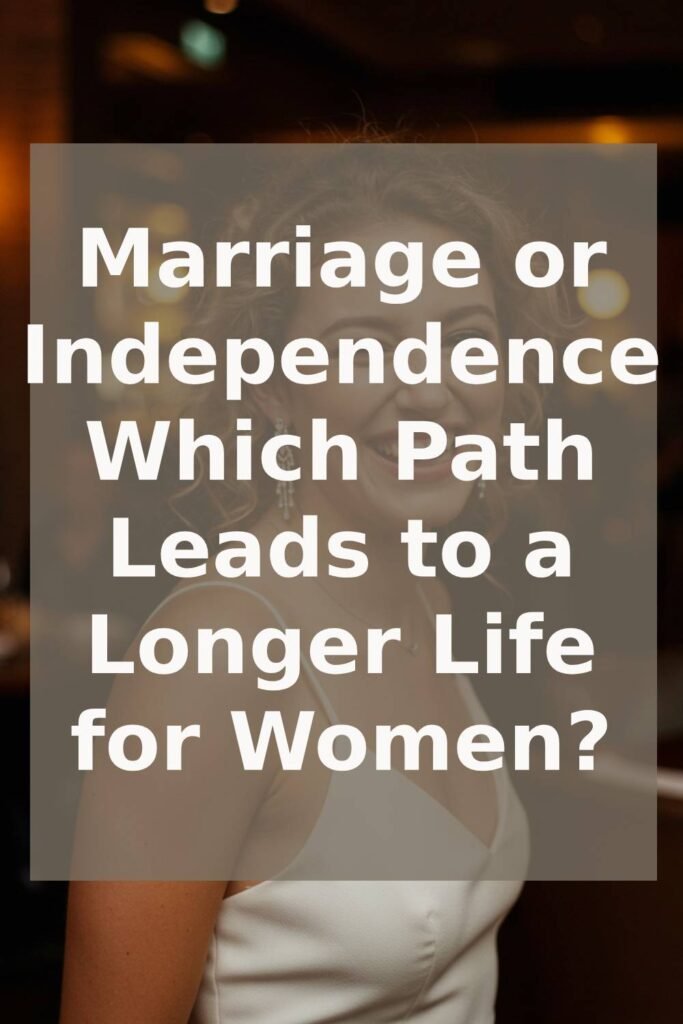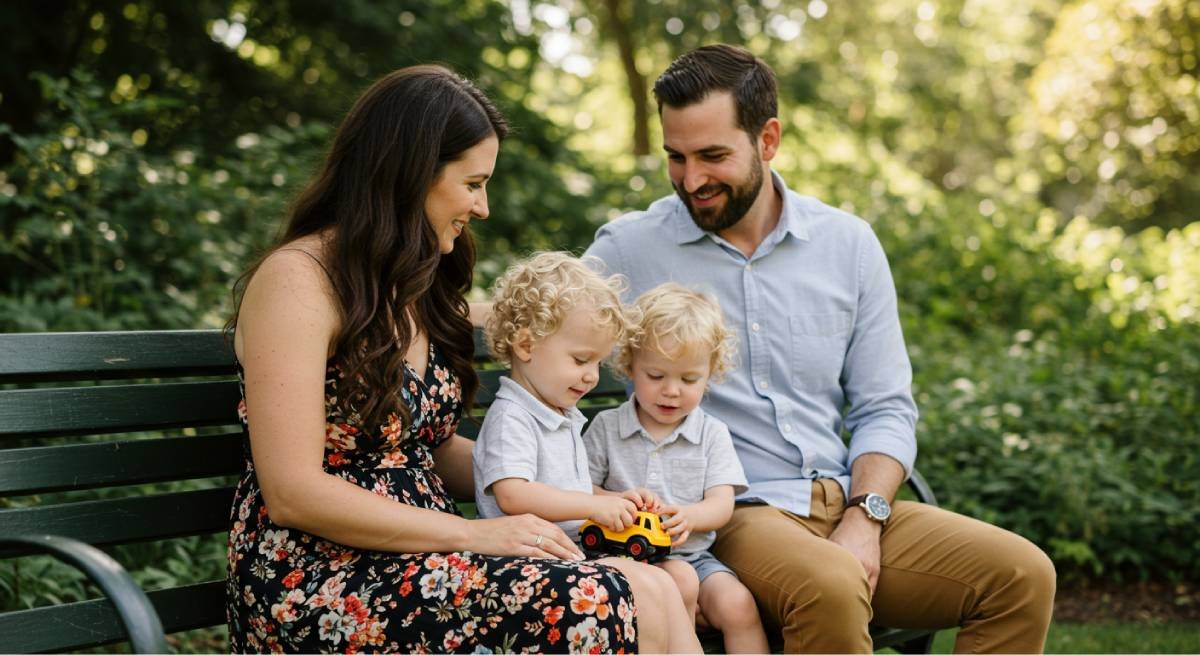
When it comes to health and longevity, a woman’s relationship status might be more influential than you think. While factors like diet, exercise, and genetics often take center stage in discussions about lifespan, there’s another, more subtle player: the emotional and lifestyle dynamics tied to whether a woman is married or single.
At first glance, it might seem obvious—marriage provides companionship, shared responsibilities, and emotional support. Doesn’t that naturally translate into a longer, healthier life? But dig a little deeper, and you’ll find that the story isn’t so clear-cut.
Single women are quietly rewriting the script on what it means to age well. Many are thriving emotionally, financially, and physically without a partner. For them, autonomy, self-awareness, and prioritizing their own health are not just perks of being single—they’re lifelines.
So who really has the edge in the longevity game—married women or single women?
The answer isn’t black and white. Each path brings with it unique stressors and advantages that can affect a woman’s physical health, mental well-being, and overall quality of life.
Marriage can offer deep emotional intimacy, but it can also introduce chronic stress if the relationship is imbalanced. Likewise, singlehood may shield women from the emotional labor of caregiving, but it may also lead to loneliness if strong social connections aren’t present.
In this post, we’ll explore the nuanced ways both marriage and singlehood can influence a woman’s longevity—looking beyond surface assumptions to uncover what truly helps women live not just longer, but better. Whether you’re in a committed relationship or proudly single, you’ll walk away with a deeper understanding of how your lifestyle choices impact your well-being across the decades.

Who Lives Longer: Married or Single Women?
The question of who lives longer—married or single women—has sparked curiosity for decades, and the data offers more nuance than you might expect.
For men, marriage is consistently linked to longer life expectancy. It often provides emotional stability, social support, and healthier lifestyle choices—largely due to the caregiving and emotional labor frequently provided by women.
But when it comes to women, the story is far more complex.
While marriage can bring companionship and shared financial resources, it can also come with invisible emotional burdens. Women often take on the role of caregiver, emotional manager, and peacemaker within the relationship. Over time, this can create chronic stress—especially if the relationship is unbalanced or lacks emotional reciprocity.
Surprisingly, studies have shown that single women may actually live longer than their married counterparts. A 2017 study by psychologist Dr. Bella DePaulo revealed that never-married women are often more physically active, socially connected, and self-sufficient than married women. They tend to build richer networks of friendships, invest more in personal growth, and experience fewer daily stressors from caregiving or emotional labor.
This isn’t to say marriage is inherently bad for a woman’s health—it depends heavily on the quality of the marriage. A strong, supportive partnership can be a source of stability, happiness, and improved well-being. But a toxic, emotionally draining, or one-sided marriage can do more harm than good, both mentally and physically.
So, who has the longevity edge?
There’s no one-size-fits-all answer. The key lies not in the status itself—single or married—but in how that lifestyle supports a woman’s autonomy, emotional peace, and well-being.
Let’s take a deeper look at both sides of the equation, starting with the often underestimated benefits of living life independently as a single woman.
💫 15 Reasons Why Single Women May Live Longer Than Married Women

1. Lower Stress Levels
Single women are often free from the emotional labor that comes with managing a household or maintaining a relationship. This autonomy helps them reduce chronic stress and enjoy better mental and physical health.
2. Greater Focus on Health
Without needing to coordinate with a partner or manage children, single women often have more time to prioritize their own health—exercising regularly, eating mindfully, and getting enough sleep.
3. Higher Financial Autonomy
While dual incomes can help married couples, many single women enjoy greater control over their finances, leading to decisions that support their long-term well-being—such as investing in fitness, healthcare, and living in healthier environments.
4. Autonomy in Decision-Making
One of the greatest advantages of being single is freedom. From daily routines to major life choices, single women can act based on what serves them best—without needing to compromise.
5. Stronger Social Circles
Contrary to stereotypes, many single women maintain vibrant social lives and strong friendships. These relationships often offer emotional support, laughter, and deep connection—all of which support longevity.
6. Avoidance of Unhealthy Relationships
Remaining single can mean avoiding toxic or emotionally draining relationships, which have been shown to take a significant toll on physical and mental health.
7. Increased Flexibility and Adaptability
Single women tend to adapt more easily to life transitions, which fosters emotional resilience. This flexibility supports healthier responses to stress and life’s inevitable changes.
8. More Time for Personal Growth
Singlehood often gives women space to explore who they are—without being defined by a relationship. Personal development contributes to a stronger sense of self and emotional stability.
9. No Risk of Divorce Stress
Divorce can be emotionally and physically exhausting. Single women avoid the strain of separation, legal battles, and financial upheaval—factors that can affect both health and longevity.
10. Higher Emotional Well-Being
Many single women report feeling more in control of their emotional lives. They are less likely to suffer from the resentment or dissatisfaction that sometimes develops in long-term marriages.
11. Less Caregiver Burden
Married women often take on caregiving roles—not just for children but for aging parents or ill partners. This responsibility can be physically draining and emotionally taxing.
12. Reduced Chronic Stress Exposure
Marriage brings companionship, but it can also introduce chronic stress—from managing finances to resolving conflicts. Avoiding this stress helps single women preserve their health longer.
13. Greater Investment in Self-Care
Single women are more likely to engage in regular self-care practices, from wellness routines and yoga to solo travel and therapy. These practices support both physical and emotional longevity.
14. Freedom to Pursue Purpose
Purpose is a known contributor to a longer life. Single women often direct their energy toward meaningful work, passion projects, or causes they deeply care about.
15. More Opportunities for Fulfillment
Free from domestic expectations, single women often explore more diverse experiences—art, travel, education, entrepreneurship—which bring joy, excitement, and deeper life satisfaction.
💍 8 Reasons Why Married Women May Live Longer Than Single Women
While the independent lifestyle has clear advantages, marriage can also offer meaningful health benefits—especially in relationships that are stable and fulfilling.

1. Built-In Emotional Support
A caring spouse can be a source of consistent emotional support, especially during times of illness, grief, or personal crisis. That kind of companionship can help buffer the effects of stress.
2. Lower Risk of Mental Health Issues
Marriage—when healthy—can act as a protective buffer against depression, anxiety, and loneliness. Emotional closeness often improves self-worth and creates a sense of security.
3. Shared Healthy Habits
Married couples often influence each other’s health behaviors—from joining a gym to quitting smoking. A partner who promotes good habits can help you stay on track with wellness goals.
4. Economic Advantages
Marriage can bring financial benefits, such as dual incomes, shared expenses, and better insurance plans. This financial cushion improves access to healthcare and reduces money-related stress.
5. Better Healthcare Outcomes
Married women may be more likely to receive medical care sooner, thanks to a partner encouraging doctor visits or being present to notice changes in health.
6. Reduced Engagement in Risky Behaviors
Single individuals statistically engage in riskier behaviors (alcohol use, smoking, casual sex) more often. Marriage can help provide structure and responsibility, discouraging harmful habits.
7. Increased Happiness—When the Marriage is Healthy
A fulfilling marriage can increase feelings of happiness, purpose, and stability. These positive emotions translate into stronger immune systems, lower blood pressure, and even longer lifespans.
8. Expanded Social Networks
Marriage often leads to broader social networks through extended family, in-laws, and shared friends. These added social layers can offer both emotional and practical support over time.
⚖️ Does Marriage Actually Shorten Women’s Lives?
Not necessarily. The quality of the relationship is what really matters.
Unhappy or high-conflict marriages have been associated with poorer health outcomes, including higher levels of cortisol (stress hormone), depression, and even increased risk of heart disease.
But a supportive, loving partnership? That can absolutely enhance health and promote longevity.
In other words, it’s not whether you’re married—it’s how well you’re married.
🧠 The Role of Choice and Fulfillment
At the heart of this discussion is autonomy. Whether a woman is single or married, what most impacts her health and life expectancy is how aligned her life is with her values.
- Does she feel supported and free?
- Does she have meaningful connections?
- Is she physically and mentally well?
- Is she safe—emotionally and financially?
If the answer is yes, she is more likely to live a longer, healthier life—regardless of her relationship status.
💬 Final Thoughts & Advice
So, what’s the takeaway?
- Marriage can support longevity if it brings connection, support, and stability.
- Singlehood can also support longevity if it allows space for autonomy, health focus, and meaningful relationships.
- What matters most is not the status, but the lifestyle, mindset, and emotional well-being that come with it.
If you’re married, nurture the relationship—but don’t lose sight of your individuality. Protect your mental health, pursue your passions, and make time for self-care.
If you’re single, lean into your freedom. Cultivate joy, purpose, and connection in your own way. You’re not missing out—you’re choosing a life that aligns with your truth.
❤️ Whether Married or Single—Live Deliberately
In the end, longevity isn’t just about status—it’s about how we live. So rather than ask, “Who lives longer?”, ask:
“How can I live better—today, and for years to come?”





